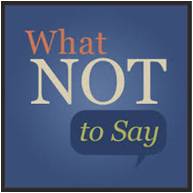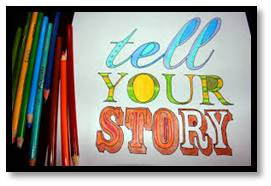Monday Author: Susanne Skinner
The landscape for job seekers has changed. What used to be a straightforward process has morphed into technology-driven black holes. Companies use programs to manage the flow and tracking of applicants, creating a depersonalized system that serves no one well. Finding a job has become a lengthy and competitive process with poor results for job seekers and hiring managers.
 Job descriptions are written with so many must-have skills and experience they threaten to exclude even the most qualified candidates. Positions remain vacant as employers hold out for the perfect candidate, a no-win outcome.
Job descriptions are written with so many must-have skills and experience they threaten to exclude even the most qualified candidates. Positions remain vacant as employers hold out for the perfect candidate, a no-win outcome.
Many postings do not reflect real opportunities. They are fishing expeditions to collect resumes without any intent to hire. Opportunities are inflated to lure experienced applicants into entry-level positions or to build a data base of potential hires should a job become available. Even the best candidates get discouraged.
That being said, every job search starts with a well-written resume. Gone are the two- and three-page versions. A resume is a sales tool and the best person to write it is you. Don’t pay an agency hundreds of dollars. Do some research and tell your story in your own words.
Internal and external recruiters, known as Talent Acquisition Specialists, are the front line. They give your resume approximately six seconds of scrutiny. In that brief amount of time your fate is sealed. What do they look at? The answer is – very little. The obvious, of course, like your name, current company, current title, your education and at least one additional company to show contiguous employment. Six seconds later you are either in the discard pile or marked as a “possible candidate.”
A refresher on resumes never goes to waste. After researching this post I took a hard look at mine and knew it needed some work. Every job is a temporary job and we all need an up-to-date well-constructed resume.
Less is More
A resume is an advertisement, nothing more, nothing less. Think of it as is real estate, with only the top half being read. Six seconds. Welcome to the New World Order.
Dense blocks of text and photos are deal breakers that harm your chances by consuming valuable real estate. A photo can create unintended gender and age bias.
White space is your friend. Your resume must communicate who you are and what you can do in concise text. Choose a clean easy to read font. The first 6 inches of that page must succinctly highlight your key strengths, framed in plenty of white space. The only goal is to make them want to talk to and eventually meet you.
Let’s talk about what you can leave out. There is no need for your street address. You need your name, phone number, email and a hyperlink to your Linked In profile or professional web site. A word about your email—and that word is Gmail. If you are using AOL, Yahoo or Hotmail you are dating yourself. Get a Gmail account and use it for your job search. No cute names. Save winedrinker@hotmail.com for your friends. The same goes for your voicemail—keep it professional.
Bullet points—a standard practice on a resume—should be used sparingly. Write strong clear content highlighting your most critical accomplishments, drawing attention to your strengths. This is the best way to show a potential employer how you can solve their problems. Use specific examples and keywords that match those listed in the job description. A resume is not intended as a history of your employment or a way to show creative self-expression. There is no need to include a “references on request” line.
Print your resume. Fold it in half. The top half should contain the information that’s relevant to the specific job you’re applying for and nothing else. If you can’t sell yourself with what is above the fold your resume still needs work.
 What Not to Say
What Not to Say
A lot has been written on this topic and spending time with Google will provide multiple resources and examples. My go-to site is The Human Workplace. Liz Ryan tells it true. With so much information available we should all have a slam dunk resume, yet most fall short—including mine. This is about what not to say.
These phrases should never appear on your resume. Why? Because companies expect applicants to possess every single one of these skills. Don’t waste space stating the obvious. None of these is a barn burner and if you are missing these skills you are missing the boat.
- Results-driven professional
- Out-of-the-box thinker
- Team player
- Cross-functional expertise
- Goal oriented
- Detail oriented
- Proven ability
- Highly motivated
- Problem solver
- Strategic thinker
- Seasoned professional
Use terms that demonstrate specific knowledge, especially in fields like web design, social media, cloud computing, and software development. There is no need to include an objective—you are looking for a job—that’s your objective. Let your story speak on behalf of that goal.
Employers look at your LinkedIn and Facebook profiles. Make sure one is up to date and the other privacy protected. Irresponsible behavior, comments and photos put you in the reject pile. Your Linked In profile should match your resume. Your Linked In photo should not be the one taken on your Cancun vacation.
 Tell Your Story
Tell Your Story
Resumes are subjective; the person reading them has no idea if you actually did the job you are describing or how well you did it. Put yourself in the shoes of the hiring manager and let them see your skills and individuality. Highlight the problems you solved, the improvements you initiated and the impact you made. Doing this part well buys additional seconds. Your resume should not say “this is what I did” but “this is what I can do for you.”
The weight of your resume is carried by your most recent job. If you’ve been there less than three years include details of your prior job. The balance of your career profile should be one line for the company and one for your title and principle accomplishments. This information lives below the fold and will only be read once you have been put in the possible pile.
Aim for brevity and clarity. Tell the truth. Double check your sentence structure. Triple check your spelling. The New World Order demands this of all applicants. A job posting will attract between 100 and 1000 resumes. You are facing a great deal of competition—make yourself stand out.
Your resume is a one-of-a-kind marketing communication tool. It presents you in your best light, showcasing specific benefits to the organization and company if they hire you. Its sole purpose is to convince the employer that you have what it takes. Make it good enough to get noticed.
